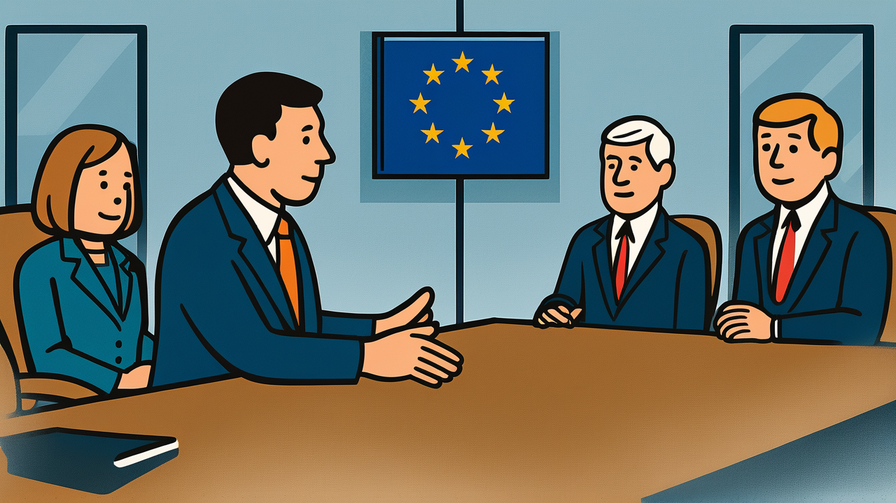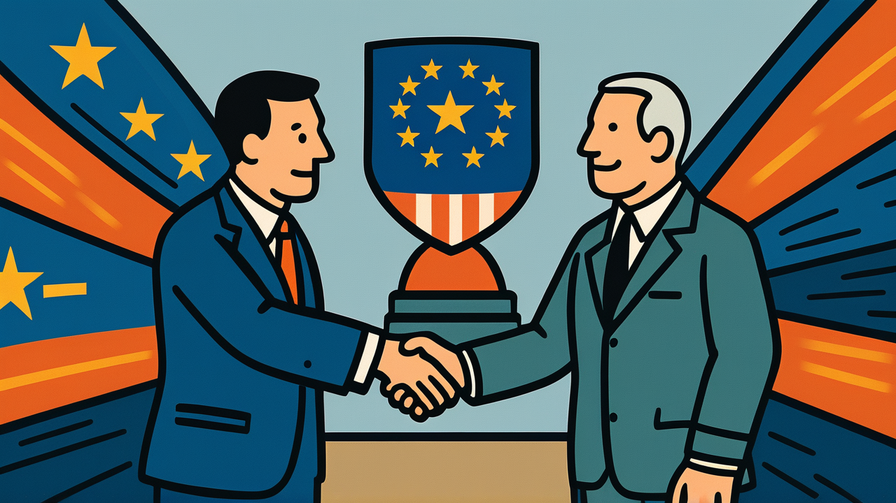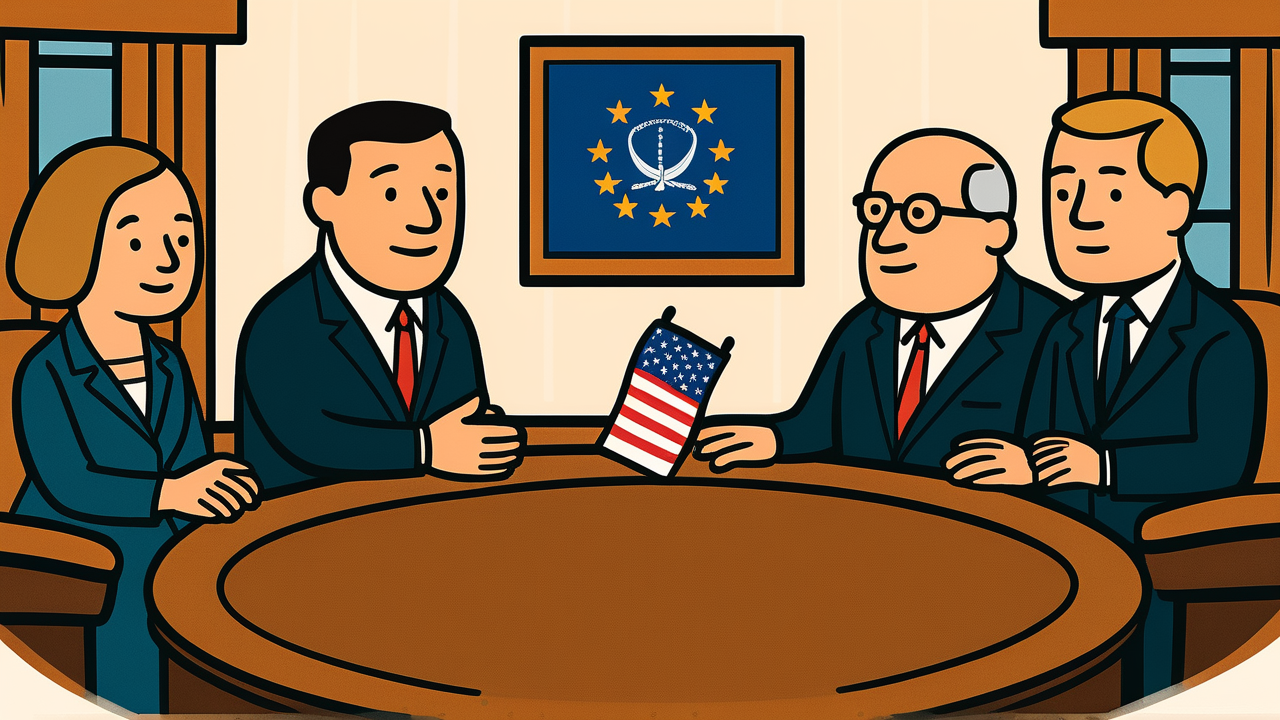[Disclaimer] This article is reconstructed based on information from external sources. Please verify the original source before referring to this content.
News Summary
The following content was published online. A translated summary is presented below. See the source for details.
Commissioner Kubilius delivered a keynote address at the European Defence Night in Washington, DC on July 22, 2025, marking a historic moment as the first European Commissioner for Defence and Space to visit the US capital. In his opening remarks, he expressed pride in this milestone role, which represents the EU’s growing commitment to defense cooperation. The creation of this position signals Europe’s intention to take greater responsibility for its own security while maintaining strong transatlantic partnerships. The European Defence Night event brings together defense officials, industry leaders, and policy experts from both sides of the Atlantic to discuss shared security challenges, defense innovation, and the future of NATO cooperation. This visit emphasizes the importance of US-EU collaboration in addressing global security threats, from conventional military challenges to cyber warfare and space security.
Source: European Commission Press Corner
Our Commentary
Background and Context

The European Union traditionally focused on economic cooperation, but security concerns have pushed it toward defense coordination. For decades, European defense was mainly handled through NATO (North Atlantic Treaty Organization), where the US plays the leading role.
Creating a Commissioner for Defence and Space represents a major shift – it’s like Europe hiring its first security coordinator after relying on a neighborhood watch led by its bigger neighbor. This doesn’t replace NATO but adds another layer of European cooperation.
The timing is significant. Global security challenges include Russia’s actions in Ukraine, cyber attacks on critical infrastructure, competition in space, and concerns about China’s military growth. Europeans increasingly feel they need to coordinate their own defense capabilities while remaining close US allies.
Expert Analysis
Commissioner Kubilius visiting Washington first sends a clear message: Europe wants to strengthen defense capabilities while reassuring America that this complements, not competes with, NATO. It’s diplomatic choreography – showing respect for the longtime security partner while asserting European ambitions.
The combination of “Defence and Space” in the title reflects modern security realities. Today’s conflicts involve satellites for communication and navigation, cyber warfare capabilities, and traditional military forces. Space assets are crucial for everything from GPS to military communications.
European defense spending has increased significantly, but coordination remains challenging with 27 different militaries, defense industries, and national priorities. The Commissioner’s role includes encouraging joint procurement, shared research, and common standards.
Additional Data and Fact Reinforcement
EU member states collectively spend over €240 billion on defense annually, making them the world’s third-largest defense spender after the US and China. However, this spending is fragmented – Europe has 178 different weapon systems compared to 30 in the US.
The European Defence Fund allocates €8 billion (2021-2027) for collaborative defense research and development, supporting projects like next-generation fighter jets and cyber defense systems. This represents the first time EU budget money directly funds defense projects.
Young Europeans increasingly support common defense efforts. Polls show over 75% favor more defense cooperation, partly due to Ukraine conflict impacts and general security concerns. This generational shift influences political decisions about European strategic autonomy.
Related News
This visit occurs as NATO adapts to new challenges. The alliance has expanded to include Finland and Sweden, strengthened its eastern borders, and increased focus on Indo-Pacific security. European defense initiatives must align with these broader changes.
The space dimension is increasingly important. Europe’s Galileo satellite navigation system provides independence from GPS, while military satellites become crucial for modern warfare. The EU Space Programme budget exceeds €14 billion, supporting both civilian and security applications.
Summary

Commissioner Kubilius’s historic Washington visit symbolizes Europe’s evolution from purely economic union to one taking active responsibility for security and defense. For young Europeans and Americans, this shift shapes the future security landscape. Career opportunities expand in defense technology, cybersecurity, space systems, and international security cooperation. Understanding these changes helps students prepare for a world where security challenges require both traditional alliances and new forms of cooperation. The success of European defense coordination will influence global stability and the transatlantic relationship for decades to come.
Public Reaction
Defense industry representatives welcome increased European coordination, seeing opportunities for larger contracts and standardized equipment. Peace activists worry about militarization, preferring diplomatic solutions. American officials express mixed views – supporting burden-sharing but concerned about duplication of NATO efforts. Young professionals in tech and aerospace see new career opportunities in European defense innovation.
Frequently Asked Questions
Does this mean Europe is creating its own army? No, EU member states maintain their own militaries. The Commissioner coordinates joint projects, procurement, and research, but doesn’t command troops.
How does this affect NATO? European defense efforts aim to strengthen the European pillar of NATO, not replace it. A stronger Europe means a stronger alliance, with Europeans taking more responsibility for their own defense.
What career opportunities does this create? Growing fields include cybersecurity, drone technology, satellite systems, defense research, and international security policy. Languages and technical skills are increasingly valuable in this sector.


